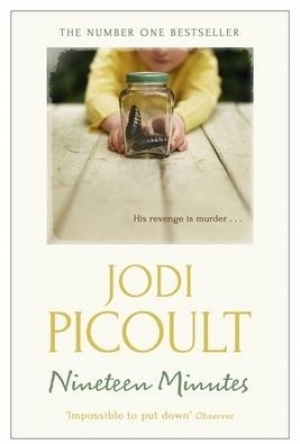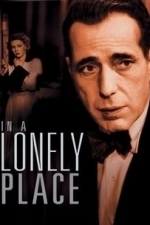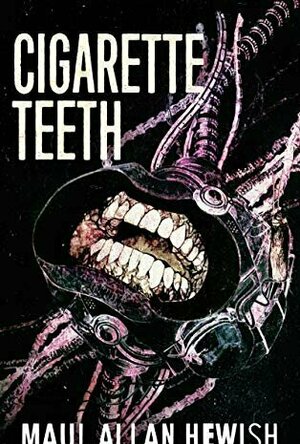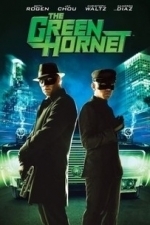
123 Coloring Book for children age 1-10: Games free for Learn to write the Spanish numbers and words while coloring with each coloring pages
Games and Education
App
Write & Color Spanish numbers 123 numbers Coloring Book | Coloring Free Games for Kids Boy and Girls...

Hello Next! Forget your ex.
Entertainment and Lifestyle
App
Just broke up? Haven’t seen your ex for a while but your heart is still broken with no one there...
Hazel (1853 KP) rated Nineteen Minutes in Books
May 25, 2017
Nineteen Minutes is perhaps Jodi Picoult’s most controversial novel, as well as one of the longest. Lots of things can happen in nineteen minutes including a school shooting resulting in the deaths of ten people. This is what happens at the beginning of this book, leaving hundreds of teachers and students emotionally scarred for the remainder of their lives. Picoult explores the reactions of a community who’s ideas of safety have been shattered, the grief of the victims and their families and, perhaps most importantly, the heartache of the parents of the shooter.
Seventeen-year-old Peter Houghton has had enough of the bullying that he has endured throughout his entire school life. He has no friends, is constantly miserable, possibly suicidal, and so, on a typical morning in March 2007 he decides permanently fix the situation, unthinking of the consequences. But why did he go to such extremes? What circumstances in his life led to firing a gun as the only solution?
As the evidence is gathered in the lead up to the court trial, many key characters question their own involvement in Peter’s life. Firstly there is Josie Cormier, a straight-A student who swapped her childhood friendship with Peter for popularity and her boyfriend Matt, a particularly aggressive bully. Secondly there is Alex Cormier, Josie’s mother, who destroyed her friendship with Peter’s mother after finding their five-year-old children playing with guns in the Houghton’s basement.
If Peter’s father had never owned a selection of hunting rifles, would Peter ever have thought of guns as a way out of his predicament? On the other hand, Lacy Houghton blames herself for not noticing how badly her son was suffering, not just at school, but at home as well, where he had to live up to the memory of his saint-like older brother who died in a car crash the previous year.
Naturally a tragic event such as this changes people, however not always in a negative way. Relationships begin to blossom as characters realize how close they were to losing the ones they love. Alex takes a step back from her demanding job to comfort Josie in the aftermath, thus feeling closer to her than she ever has done before. Alex, a single mother, also opens herself up to a romantic relationship, something she has had no time to seriously consider up until now.
All the while, Defense Attorney Jordan McAfee, who some readers may remember from Salem Falls, fights a losing battle to get Peter acquitted, by arguing and prying into Peter’s emotions to discover his reason for committing murder.
What I like about Picoult’s novels is that there is a lot more to it than a simple storyline. While the story plays out and plot twists happen, the reader is learning something new. In Nineteen Minutes Picoult provides insight into midwifery, psychology and economics – things that are not synonymous with the shootings.
Readers will constantly question whose side of the story they are on. Hundreds of people grow up being bullied and will understand how Peter was feeling; yet they would not pick up a gun. Likewise, by putting themselves in the shoes of the victims readers will think about how they would feel in the same situation. However would anyone be willing to admit that they made someone else’s life a living hell? There is no simple conclusion to Nineteen Minutes; someone will always lose. Nevertheless, Picoult’s fantastic writing skills provide an enthralling story of love and loss.
I cannot recommend this book to readers in general due to the nature of the themes found in the story. Gun crime and school shootings are sadly still an occurrence in the present time, particularly in America, therefore there are thousands of people who have been affected by such an event, whether directly or indirectly as part of a local community. Some readers may find Nineteen Minutes challenging and upsetting, which is why I am not going to encourage everyone to read this book. However, Picoult has excelled herself with this novel and it would be a shame for people not to read it. Fans will not be disappointed with her writing and will love all her characters, possibly even Peter!

Good&Co: Personality Test
Business and Education
App
Hate your job? Great! That’s why we’re here. Is your employment satisfaction at an all-time low?...
Hazel (1853 KP) rated Nineteen Minutes in Books
Dec 7, 2018
Nineteen Minutes</i> is perhaps Jodi Picoult’s most controversial novel, as well as one of the longest. Lots of things can happen in nineteen minutes including a school shooting resulting in the deaths of ten people. This is what happens at the beginning of this book, leaving hundreds of teachers and students emotionally scarred for the remainder of their lives. Picoult explores the reactions of a community who’s ideas of safety have been shattered, the grief of the victims and their families and, perhaps most importantly, the heartache of the parents of the shooter.
Seventeen-year-old Peter Houghton has had enough of the bullying that he has endured throughout his entire school life. He has no friends, is constantly miserable, possibly suicidal, and so, on a typical morning in March 2007 he decides permanently fix the situation, unthinking of the consequences. But why did he go to such extremes? What circumstances in his life led to firing a gun as the only solution?
As the evidence is gathered in the lead up to the court trial, many key characters question their own involvement in Peter’s life. Firstly there is Josie Cormier, a straight-A student who swapped her childhood friendship with Peter for popularity and her boyfriend Matt, a particularly aggressive bully. Secondly there is Alex Cormier, Josie’s mother, who destroyed her friendship with Peter’s mother after finding their five-year-old children playing with guns in the Houghton’s basement.
If Peter’s father had never owned a selection of hunting rifles, would Peter ever have thought of guns as a way out of his predicament? On the other hand, Lacy Houghton blames herself for not noticing how badly her son was suffering, not just at school, but at home as well, where he had to live up to the memory of his saint-like older brother who died in a car crash the previous year.
Naturally a tragic event such as this changes people, however not always in a negative way. Relationships begin to blossom as characters realize how close they were to losing the ones they love. Alex takes a step back from her demanding job to comfort Josie in the aftermath, thus feeling closer to her than she ever has done before. Alex, a single mother, also opens herself up to a romantic relationship, something she has had no time to seriously consider up until now.
All the while, Defense Attorney Jordan McAfee, who some readers may remember from <i>Salem Falls</i>, fights a losing battle to get Peter acquitted, by arguing and prying into Peter’s emotions to discover his reason for committing murder.
What I like about Picoult’s novels is that there is a lot more to it than a simple storyline. While the story plays out and plot twists happen, the reader is learning something new. In <i>Nineteen Minutes</i> Picoult provides insight into midwifery, psychology and economics – things that are not synonymous with the shootings.
Readers will constantly question whose side of the story they are on. Hundreds of people grow up being bullied and will understand how Peter was feeling; yet they would not pick up a gun. Likewise, by putting themselves in the shoes of the victims readers will think about how they would feel in the same situation. However would anyone be willing to admit that they made someone else’s life a living hell? There is no simple conclusion to <i>Nineteen Minutes</i>; someone will always lose. Nevertheless, Picoult’s fantastic writing skills provide an enthralling story of love and loss.
I cannot recommend this book to readers in general due to the nature of the themes found in the story. Gun crime and school shootings are sadly still an occurrence in the present time, particularly in America, therefore there are thousands of people who have been affected by such an event, whether directly or indirectly as part of a local community. Some readers may find <i>Nineteen Minutes</i> challenging and upsetting, which is why I am not going to encourage everyone to read this book. However, Picoult has excelled herself with this novel and it would be a shame for people not to read it. Fans will not be disappointed with her writing and will love all her characters, possibly even Peter!

The Strategy Builder: How to Create and Communicate More Effective Strategies
Duncan Angwin and Stephen Cummings
Book
A visual and interactive guide to building and communicating strategies that actually work YOUR...
Illeana Douglas recommended In a Lonely Place (1950) in Movies (curated)
Hadley (567 KP) rated Cigarette Teeth in Books
Dec 4, 2020
What if I told you there was a phone number you could call that would give you whatever you wanted...for a simple favor in return? Enter : Cigarette Teeth. The horror novel concerns two different places that exist in our world: the Pleasure Palace, where the Magician resides in an overcast of red light where he helps make peoples' 'dreams' come true, and our reality - - - the world as we've grown to know it.
Our main character, Mike Hadley, can't remember his past or how he ended up working for the Magician, but he's more than happy to do what he's told in Cigarette Teeth. Some things seem familiar to him, like his working partner, Tommy; but if you asked him what he did last night for the Magician, he wouldn't be able to tell you or remember it himself. Harper, a man Hadley meets early on in the story, who is the stereo-typical hardened detective, tells Hadley that he knows that the Pleasure Palace has been the cause of hundreds of disappearances - - - including Harper's own brother and sister- - - and demands that Hadley help him get into the Palace to find them.
Hadley is kidnapped by Harper while people working for the Pleasure Palace begin to come after them, trying to kill them. Unlike Hadley, Harper has done a lot of detective work on the Pleasure Palace and knows much more than he does. For Hadley, a lot of things begin to make sense and no sense at the same time, like people who work for the Pleasure Palace can't die, instead they regenerate in a very gruesome way- - - something he had never seen happen before. Now, being away from the Palace, whenever Hadley falls asleep, memories start to come back to him in the form of dreams; most of them take place in metaphorical places that slowly unwrap his tragic past to the reader.
I often found myself fascinated by the characters Hewish came up with that live in the Pleasure Palace. One being the Zipper Sisters: "Kela and and Lua Von Zipper. Conjoined twins; connected at the hip and zipped into the one gigantic pinched- leather corset. Two heads, two arms, and four legs, all sealed in an ornate, Victorian-style leather dress hemmed with black lace.
Their makeup was corpse-white, their lipstick blood red. Their eyes were shadowed with a weeping pastel green, like something from a carnival sideshow. Their 18th-century dress continued with ruffles and lacy stockings, all the colour of snow. The two pairs of shoes they wore- - - shiny little school shoes, the ones with the clasps over the top- - - completed the look. It gave these sinister twins a suggested air of innocence- - - the filthiest of lies. "
When the pair meet with the Architect of the Pleasure Palace (Horitoshi Li), the story really begins to take off. The information given to them by Li about the Magician is the real start to their journey to stop the Palace and find Harper's missing siblings, as long as they include Li in the plan.
As expected, a friend of Harper's, named Sophie, gets caught up in their journey- - - saving their lives more than once, thanks to her nursing background. Sophie felt like a filler character at first, but in the end, I think she was needed to make the story well-rounded, like her insight of psychology: "...But...it's just interesting. Did you know the second most common dream people have is about their teeth? After the 'being chased' phenomenon that usually coincides with a hallway and a door. Most notable psychologists don't really offer insight on dreams- - - the most popular consensus is that they're nothing more than cerebral static, just garbled images and words that occasionally form to make something that seems to have weight..."
Though I want to say so much more about the novel, it would give away a lot of the surprises that are hidden inside. Hewish's writing is gold; the way he describes scenes is beautifully done, but he did waste some of this talent on places where the characters weren't even there for more than a scene (and nothing really came of it). Also, Harper states one time early in the book that he has killed Hadley before... this is never explained or spoken of again. I think that was a very important part to this story, especially with how things turn out between Harper and Hadley.
There were only a few inconsistencies that are completely able to be looked over and don't ruin the novel. This is master storytelling, and I am looking very forward to more work by Hewish! I would recommend this book to fans of the show "Twin Peaks," and the video game (because I love horror video games) "Evil Within." Highly recommend!
Gareth von Kallenbach (980 KP) rated The Green Hornet (2011) in Movies
Aug 7, 2019
When it was first announced that Seth Rogen would star as the title character many people were first skeptical that a chubby comedian would be able to pull off the part. While the Green Hornet is not as iconic as Batman, the casting did bring to mind the controversy of casting Michael Keaton as the Dark Knight for Tim Burton’s take on the Caped Crusader.
Further complicating matters were the delays and in the announcement that the film would be converted to 3-D in postproduction even though it was shot in 2-D. When the film failed to meet its anticipated holiday debut there were those that had wondered if the film would fail to meet even modest expectations as January certainly isn’t the time of year that action films, especially those based on a superhero, are released.
Thankfully the film is an extremely pleasant surprise that deftly mixes comedy and action with smart pacing in a winning formula. The film tells the story of Britt Reid (Rogen), the son of a wealthy newspaper owner who, despite his best efforts, always disappoints his father who never runs out of ways to criticize his only child. Britt, to his father’s dismay, has no ambition in his life and is content to live in the guesthouse of his father’s mansion, womanizing and embracing the party scene.
When his father dies unexpectedly, Britt is forced to take control of the newspaper, a job for which he is woefully unqualified. It is at this time that Britt meets Kato (Jay Chou), his father’s long-time employee, responsible for taking care of the elder Reid’s very impressive fleet of cars.
One evening in an act of rebellion against the benevolent image of his father, Britt and Kato intervene to stop a crime. Motivated by their success and by Kato’s amazing ability to invent technology and modify vehicles, as well as his superb martial arts abilities, the duo set out to make a name for themselves by taking on the city’s criminal element.
While it first appears that Britt sees this as just some grand adventure, he soon becomes dedicated to the cause and sets upon a path to use his newspaper to play up his newly created hero. The plan is to make the Green Hornet appear to be a bad guy when in reality he is fighting to end crime. The convoluted idea has some initial success despite Britt’s lack of fighting ability. Britt and Kato soon begin to make a name for themselves in the local underworld as well is dominate the media.
At this time a young assistant named Lenora case (Cameron Diaz), comes to work for Britt. Britt and Kato are both captivated by Lenora and use her knowledge of criminal psychology to detail their plan of action for their alter egos. While Britt and Kato are buoyed by their initial success they soon find themselves under the scrutiny of the local crime boss Chudnofsky (Christopher Waltz), an insecure criminal who believes people don’t think he is scary enough or stylish enough.
Finding them an annoyance, Chudnofsky decides to wage all-out war on the Green Hornet and Kato and will rest at nothing to see them dead. As if this was not bad enough, Britt and Kato find themselves in a jealous rivalry over Lenora as well as their roles. Britt sees himself as the real hero and Kato as merely his sidekick. Kato naturally takes umbrage with this being not only the one who develops all of their gadgets, including the awesome black beauty equipped with bulletproof glass, machine guns, rocket launcher and a flamethrower, but also the one with the amazing fighting skills.
What follows is a hilarious and action packed film that is one of the most satisfying action-buddy-comedies ever made. Rogen is in his element cleverly playing Britt as an everyman who, despite having all the advantages of wealth, is still very much a kid playing superhero who has to learn about the important things in life .
The action sequences are fresh and entertaining and both Rogen and Chao pull off their roles very convincingly. While the plot is not overly complex it serves its point and propels the characters along without getting bogged down or becoming too ridiculous. Director Michel Gondry keeps the film moving at a steady pace without overstaying its welcome and does not allow the action to overtake the characters.
The supporting cast is very strong and the only real issue I had with the film was the converted 3-D that was totally unnecessary and did little to enhance the film. Very few sequence appeared to benefit from it. That being said I had a fantastic time at this film and I surely hope that we’ll be seeing other films in the series in the not too distant future.
Hadley (567 KP) rated Stranger Things: Runaway Max in Books
Feb 16, 2020
Max Mayfield is a pre-teen that just moved to Hawkins, Indiana after her mother remarried and added an abusive step-father and step-brother to the family equation. She spends most of her time trying to not want to fit in with the kids at her new school, riding her trusty skateboard behind the building during recess and telling a group of boys who can't stop staring at her to leave her alone. Max's home life has become unbearable to the point that she debates running back to her real father in California. Fortunately, two of those boys that couldn't stop staring try to be friends with her, but when she begins to hang around them, she learns that things are not what they seem in Hawkins, Indiana. Merging with this group of boys, Max's life is forever changed, and probably for the better.
Runaway Max doesn't focus on the supernatural aspect that Stranger Things is known for. Instead, the focus is on a girl's life that gets turned upside down [pun intended] by the introduction of two abusive people that enter it with the intent of either destroying her or making her compliant, the struggle with who she is and who everyone else says she should be, to the desperation for just one real friend. Personally, I believe Yovanoff did an amazing job at telling Stranger Things fans the backstory of our Mad Max. As a result, I have no complaints about this novel whatsoever.
Yovanoff starts readers off with Max riding her skateboard through downtown Hawkins, with Max telling us how she was happy there was an arcade in this small town. Max wipes out on her skateboard, where a woman who will be very familiar to fans, runs out of a store to help her to her feet until the loud sound of engine comes pulling up; enter Billy and his Camaro. All throughout the story, readers get to see more of what was going on inside the Mayfield/Hargrove's household, which viewers of the series were only witness to one of the abuses happening to Billy by his father.
Runaway Max picks up the pace when a familiar scene happens with Max joining Stranger Things regulars: Lucas and Dustin, for Halloween around Hawkins. But with this story, we follow Max home after Will's encounter with a creature from the Upside Down. We learn that Billy never picked Max up, as he was suppose to, and that his father, Neil, is beyond angry when Billy comes home drunk and high:
" When Billy came slamming into the house, the smell came with him, rolling like the clouds of smoke and alcohol wafting out of a dive bar. Like bad weather. He was stumbling a little. His eyes were red-rimmed and heavier than ever, and he still had the leather jacket on, but he wasn't wearing a shirt. The light from the stained-glass lamp on the end table made him look deranged.
Neil breathed in through his nose and heaved himself out of his chair. 'And where the hell have you been?'
'Nowhere,' Billy muttered, and tried to brush past him, but Neil stepped in front of him and stopped him with a hand on his chest.
'What was that?'
Billy ducked his head and mumbled something about a flat tire. I couldn't tell if he was being honest or not - - - probably not - - - but as soon as he said it, it was pretty obvious that I had been lying. Whatever he'd been doing, it definitely hadn't been giving a school friend a ride home.
Neil had stayed ominously quiet, but now he drew himself up and took a step forward so he had Billy trapped against the wall. 'I'm curious to know where you learned to be so disobedient.'
Billy stared back at him. He was standing with his chin down and his jacket open, looking mutinous. He smelled like beer and the dry-skunk smell of Nate's brother, Silas, and all the other eighth-grade boys who got stoned behind the baseball diamond back home. It was the smell of not caring. 'Bite me, Neil. I'm not in the mood.'
For a second, they just stood looking at each other.
Then Neil spoke in a low, dangerous voice. The air was heavy and metallic, like right before a thunderstorm. 'I don't know where you've been or what you've been up to, but you will show me some respect!'
He shouted the last part. His voice sounded much too big in the smallness of the living room, and I winced, even though I was willing myself not to."
After Max quickly heads to her room to count her Halloween candy...
"Out in the living room, Neil was tuning up. For a while, it was just a rumble of voices, softer sometimes, then louder. There was a short, sharp cry and then a flat, meaty sound, like punching the pocket of a baseball glove. "
Runaway Max does a superb job of detailing abuse and the psychology that plays a role in it. Readers, also, get to see more of Billy's abuse towards Max. Focusing on the shift of personality Billy goes through (those who have watched season three of Stranger Things will have more of an understanding behind Billy, I recommend that if you haven't watched that season yet, that you do after reading this book). While all of this is going on, Yovanoff also retells season two, winding it within Max's story effortlessly and concisely:
"Dustin bent over the table, gazing at the creature in his hands like it was the sweetest, most adorable thing. He kept calling it a he, even though it was so weird and shapeless that how could you tell?
When he saw me staring, he asked if I wanted to hold it, and I shook my head, but he turned and tipped it out of his cupped palms and into mine.
It felt cool and squishy, heavier than it looked, and I passed it to Lucas fast. Lucas handed it off to Will, and it made its way around the circle. I was a little relieved to see that I wasn't the only one shrinking back from it. Will was looking at it like it had some kind of disease, and even Mike didn't exactly seem thrilled to touch it. He was the bravest, though, and held it up for a closer look. "
All-in-all, Runaway Max is season two of Stranger Things to-a-tee. But with Max's relationship with Billy being molded more by this novel, it can make even the most die-hard fans look at the two in a different way. There are even small splotches of scenes where Billy seems to want Max as a little sister, one such, when Max catches him in the garage of their California home, working on his car and smoking a cigarette:
" I leaned forward with my knees on my elbows and cupped my chin in my hands. 'At the health assembly in school, they told us that we're not supposed to smoke.'
Billy straightened and closed the hood, wiping his hands with a rag. 'And do you always do everything your teachers tell you?'
That idea was so wrong it was hilarious. My grades were usually okay, but my conduct cards were a mess. I was always in trouble for something- - - talking back, or drawing cartoon hot rods on my desk with a felt pen. I laughed and shook my head.
That seemed to make him happy. He smiled in a slow, lazy way, then pulled the pack of Parliaments out of his shirt pocket. He held it out to me and waited, watching my face until I took one." When readers get to see the small moments between the two, it hurts more to know that Billy is just an abused young man that is reflecting his father's behavior.
Overall, I really enjoyed Max's story, but was it needed? Before season three, I would have said yes, but with what we learned of Billy in season three, I don't think it was completely necessary. I think only die-hard fans of the show will enjoy this book, otherwise watching the series is the majority of the novel.




